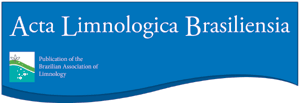Abstract
Aim Our study evaluated the effects of extreme weather events and environmental conditions on the trophic groups of copepods (herbivores and omnivores) in the upper Paraná River floodplain.
Methods The zooplankton were collected and Copepods and Rotifers were analyzed in nine environments of the upper Paraná River floodplain during 2000 and 2010, during which time the La Niña (drought) and El Niño (flood) climatic events occurred, respectively.
Results The results suggest that in periods of extreme drought productivity-related variables act as determining forces on abundance of copepod trophic groups due to the contraction of aquatic ecosystems. Although the abundance of trophic groups is associated with system productivity, the responses between them differ, since herbivore abundance was associated with chlorophyll-a and total phosphorus and omnivores with rotifer abundance. In extreme flood (El Niño), no significant relationship was found between environmental variables and any trophic group.
Conclusions In general, it is believed that in periods of extreme drought the variables associated with productivity act as determining forces on the abundance of trophic groups of copepods due to the contraction of aquatic ecosystems. According to the results found, it is suggested that other works be carried out with a greater number of extreme events to corroborate our results and, and also to extrapolate to other aquatic communities.
Keywords: climate events; microcrustaceans; trophic guilds; floodplain

 Do changes in the water regime determine the abundance of the copepod trophic group in a Neotropical floodplain?
Do changes in the water regime determine the abundance of the copepod trophic group in a Neotropical floodplain? Thumbnail
Thumbnail
 Thumbnail
Thumbnail

